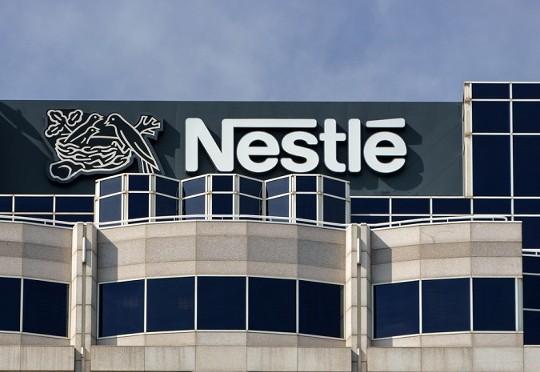
- Event: Donation of 10 tricycles and essential supplies to the Kpone Landfill Waste Pickers Association.
- Donor: Nestlé Ghana Ltd, as part of its long-term environmental sustainability initiative.
- Purpose: To improve plastic waste collection and recycling efficiency.
- Previous Contributions: Nestlé has provided a total of 88 tricycles to support waste management since 2019.
- Partners: Kpone Landfill Waste Pickers Association, Alliance for Waste Pickers Associations, and Vigour DW Enterprise.
- Venue: Ministry of Environment, Science, and Technology, Accra.
- Remarks: Managing Director Salomé Azevedo highlighted the project’s focus on sustainability and livelihoods.
- Government Endorsement: Deputy Minister Alhaji Yussif Sulemana commended the initiative and urged more corporate participation.
- Recipient’s Response: Divine Dekonor pledged proper use of the donated equipment.
Nestlé Ghana Ltd has deepened its environmental sustainability drive by donating ten tricycles and other vital tools to the Kpone Landfill Waste Pickers Association, enhancing their capacity to collect and recycle plastic waste in Accra.
The donation, made at the Ministry of Environment, Science, and Technology, marks another chapter in Nestlé’s ongoing collaboration with grassroots waste collectors. Since 2019, the company has distributed a total of 88 tricycles, along with other essential materials, to boost post-consumer waste recovery and recycling initiatives across the capital.
Through this partnership, the Kpone Landfill Waste Pickers join a growing network that includes the Alliance for Waste Pickers Associations and Vigour DW Enterprise, both key players in Ghana’s circular economy.
Speaking during the handover ceremony, Salomé Azevedo, Managing Director of Nestlé Ghana, stated that the project was not merely about collecting plastics but about empowering those who dedicate their lives to keeping communities clean. She emphasized that by equipping waste pickers with reliable tools, Nestlé aims to create both environmental and social value — improving living standards while reducing plastic pollution.
In a show of support, Alhaji Yussif Sulemana, Deputy Minister for Lands and Natural Resources, lauded Nestlé’s continued commitment and called on other private organizations to emulate the initiative. He described the collaboration as a model example of how public-private partnerships can drive meaningful progress in environmental management.
Receiving the tricycles, Divine Dekonor, representing the Waste Pickers Association, expressed gratitude and assured that the equipment would be used responsibly to enhance collection efforts at the landfill site.
The event underscored Nestlé’s growing role in Ghana’s sustainability ecosystem — linking environmental protection with community empowerment and demonstrating how corporate responsibility can yield tangible local impact.
REFLECTIVE OPINION
Nestlé’s consistent investment in waste management highlights a profound shift in how global corporations are redefining their relationship with the environment and local communities. What once was seen merely as “corporate charity” has evolved into a form of shared responsibility — where companies, citizens, and government institutions each play a crucial part in addressing environmental degradation.
In Ghana, where plastic pollution remains a growing crisis, initiatives like this remind us that sustainability cannot rely solely on government enforcement or policy reforms. It demands collaboration, innovation, and empowerment at the grassroots level — particularly for those who handle the dirty and often overlooked work of waste collection.
The waste pickers, often marginalized and underappreciated, are in fact environmental frontliners. By investing in their safety and efficiency, Nestlé not only strengthens Ghana’s recycling framework but also restores dignity to a group that plays a silent yet vital role in the fight against pollution.
As more companies follow this example, Ghana’s journey toward a circular economy could accelerate — transforming waste from a national burden into a source of livelihood, sustainability, and hope.